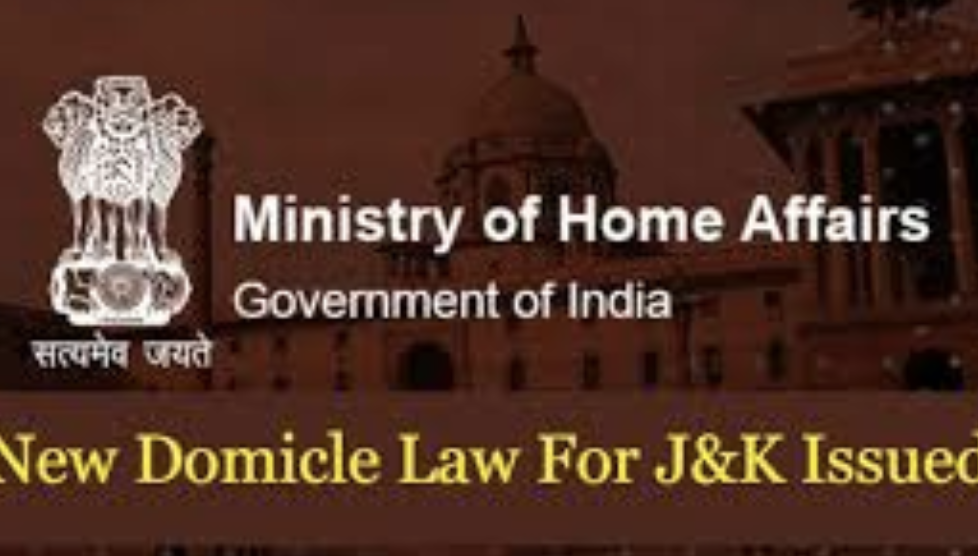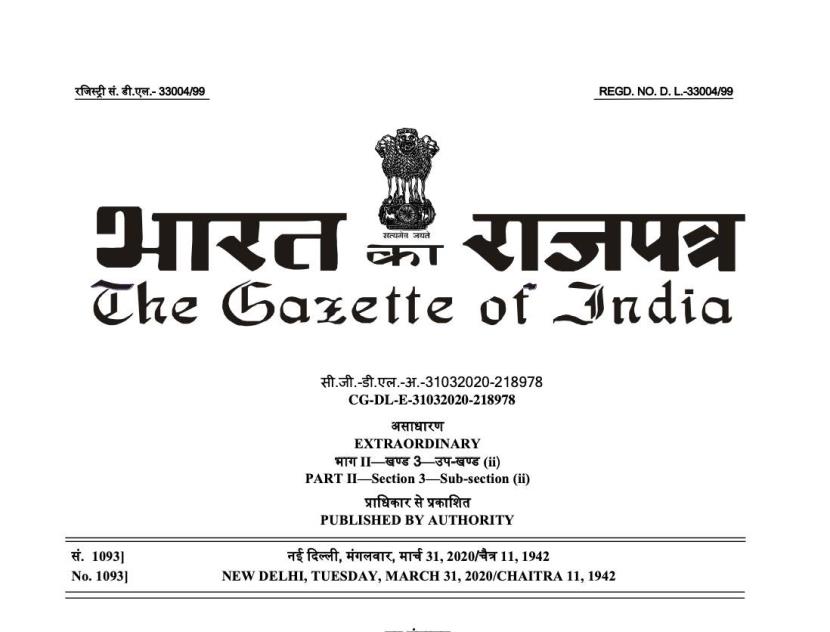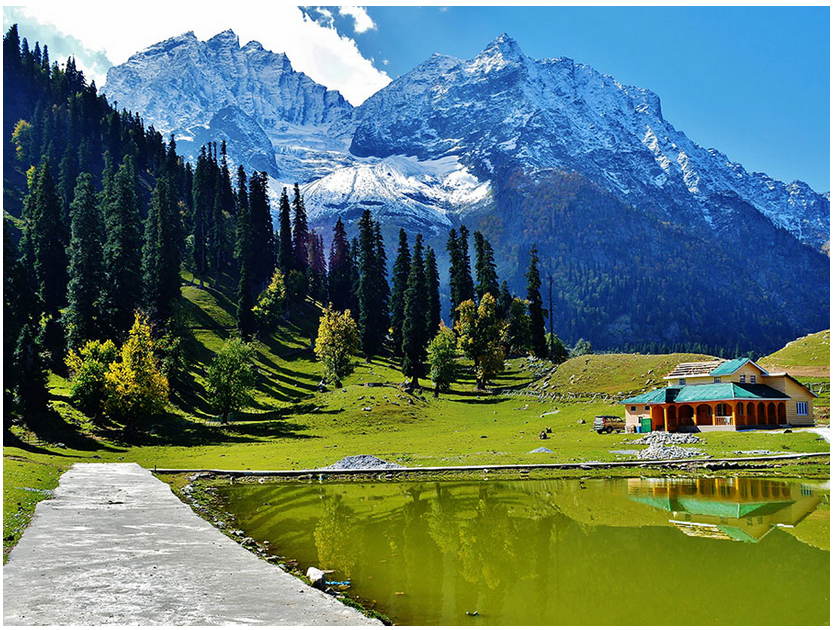Debunking Propaganda on Jammu & Kashmir Domicile Law


After the abrogation of Article 370 passed by Parliament that removed the autonomous status provision for the state of Jammu & Kashmir (J&K) and the state reorganization Act passed in parliament to further bifurcate the state into two union territories (UT) Jammu and Kashmir with a legislative assembly and Ladakh with no legislature just like 8 other UT’s in India. It is imperative that the domicile law also has to be changed with regards with the changed status.
The article 35a is a temporary provision that was included as an executive order by the first President of India Rajendra Prasad in 1954 on the recommendation of the first Prime Minister of India Nehru into the constitution bypassing article 368(i) that says any amendment has to be made through Parliament. This controversial provision incorporated in the Constitution gives the Jammu and Kashmir Legislature a carte blanche to decide who all are ‘permanent residents’ of the State and confer on them special rights and privileges in public sector jobs, acquisition of property in the State, scholarships and other public aid and welfare. The provision mandates that no act of the legislature coming under it can be challenged for violating the Constitution or any other law of the land.
State of Jammu & Kashmir’s constitution came into effect in November 7th 1956 and the discriminatory sections 51, 127 and 140 defines the Permanent Residency provisions of Jammu and Kashmir. Here are some discriminatory provisions below:
One has to understand that Kashmiri People can travel, live and buy property elsewhere in any 28 states, but the punitive J&K constitution and Article 370 prohibit to live or buy property in J&K State from the residents of other states.
While, the above Jammu & Kashmir constitution clearly supersede the Article 1 and Article 2 of Indian constitution that states:
Article 1 says India, that is Bharat, shall be a union of states and the territory
Article 2 says the acquired territories can be converted in to a state/states.
Since 1961, the article 35 a and 370 are being challenged in the court of law and its validity. However, the judgment in 1961 went in abeyance as it didn’t give the clarity on whether the President can, without the Parliament’s knowledge, introduce a new Article. Although there are other petitions filed later on the same challenging article 35a. The petition said Article 35 A is against the “very spirit of oneness of India” as it creates a “class within a class of Indian citizens”. Restricting citizens from other States from getting employment or buying property within Jammu and Kashmir is a violation of fundamental rights under Articles 14, 19 and 21 of the Indian Constitution.

Citizenship by domicile (Article 5): A person who was born in India or either of the person’s parents was born in India or the person must have been an ordinarily resident in the territory of India for not less than five years immediately before the commencement of the constitution. Domicile of a person is in that country in which the person either has or is deemed by law to have his/her permanent house.
Every State in India has enacted domicile law to determine the residency of the person. Domicile certificate is required to prove the residency of the state and only from one state at any given time. Holding multiple state Domicile certificate is illegal in India. This Certificate is required as proof of residence to avail Domicile/Resident Quotas in educational institutions and in the Government Service, as also in case of jobs where local residents are preferred. Article 5 of Indian Constitution provide the details of Domicile details.
With this changed domicile law for J&K, anyone who wants to apply for government Jobs in J&K has to satisfy certain conditions. A person who have studied in J&K and have passed 10th and 12th grade can apply for Government Job or a person who have lived for over 15 years. Mostly the children of Central Government employees who have worked in administrative services, Army and other public service undertakings like Railway, Banks and satisfy the requirements above can apply for a Government positions in J&K.
State of Jammu Kashmir prior to abrogation of article 370 comprised of Kashmir valley, Jammu region and Ladakh. Among all the regions, Kashmir valley is densely populated twice as much as Jammu region although Kashmir valley was comparatively less in area than Jammu. This can be due to Jammu region has Pir Panjal ranges and not plains. Kashmir valley is approximately about 15.7% of total Jammu & Kashmir State, while Jammu region is about 25.9%. In contrast Ladakh region is about whopping 59% of the total area. It is a commotion in western world that Kashmir is a Muslim region just like Arab world. But It is not true, when Islamic aggression happened late 15th century and most of Northern India went under Mughals, yet Kashmir was ruled by Hindu Kings and not until Akbar who briefly controlled Kashmir but later it went back to Durrani Dynasty of Afghans but later controlled by Marathas and eventually went to Sikh dynasty. Maharaja Ranjit Singh controlled Kashmir until Anglo Sikh war and eventually gifted it to Dogra Hindu Kings until 1947 accord of Annexation to Union of India.
It is pertinent to observe few important things related to religion aspect of demography, as Kashmir valley since 1961 census show a consistent decrease in Hindu Population from 5.6% to 3.4% in 2011. However, the 3.4% Hindu population in Kashmir valley consists of 150,000 Hindu males while 35,000 are females which is alarming. This is due to the mass exodus of Kashmiri Pandits from the valley in modern history which the western world and western media including Aljazeera, BBC, NY Times, Washington Post ignored deliberately. While, almost hundreds and thousands of Hindu families were killed by the terror attacks in 1990’s and created a trepidation among Hindu families that led to mass exodus. In contrast Jammu region since centuries has comparatively more Hindu demography with over 66% of Hindus, Sikhs and Buddhists. However, even this number is down from 71% from 1980 census.
Coming to Ladakh region which is historically a Buddhists dominated region since ages. Ladakh has two districts, one of is Leh and the other is Kargil. Buddhists form 66.4 percent of the population 14.3% Muslims there; in the latter, there are 14.3% Buddhists and 76.9% Muslims. Since 1947 after annexation and with autonomous status, the parties that administered the state of Jammu and Kashmir never focused on the development of Ladakh. It is interesting to note here that these parties are from Kashmir valley who tried to flex muscle on the rest of other regions in Jammu & Kashmir.

The abrogation of Article 370 has brought Jammu & Kashmir plus Ladakh completely annexed with one flag, one constitution and one Indian Penal code. The laws made by Indian parliament automatically apply to the Jammu & Kashmir and Ladakh Union Territories. The judgements and Indian Judiciary automatically imply to residents of these two UT’s even the recent ruling of criminalizing section 377 of LGBT community. Now, just like the rest of India, LGBT community can roam safely in these two Union Territories and do a Pride march which it was not the case earlier due to Ranbir Penal Code that criminalizes the LGBT. Women and children will get the right to live, right to education and right to marry the person who she like and right on ancestral properties. The women rights are protected under Indian law. The abrogation helped the residents of other states to come and do business with local while the local farmers will immensely be benefited. The trade between Jammu & Kashmir with the rest of India can be improved and farmers can get better deals than they used to get before.
On the contrary, there was a propaganda that is being played by Pakistani lobby in US and UK to portray Kashmir as another Palestine which in every perspective doesn’t apply in Jammu and Kashmir. Considering the demography and religious angle, the fake apprehensions raised by few Islamists influenced by the lobby cannot become true. A narrative that is being portrayed that the granting 25,000 new permanent residents is reversing the Muslim majority character is entirely absurd in many ways. While India is union of states holding rich plurality unlike any other country in the planet. The rich plurality is due to diversity in traditions, culture and language. Every state in India hold a diversity in its form be it Marathas or Kannadigas or Tamils or Bengalis or Punjabis or Andhraites. Every region is different and yet didn’t lost the character of the region. While, the propaganda sounds the smell of religion with Muslim character, we can take a great example of State of Kerala. Since independence, the population of Hindus declining while Muslims increased significantly. So, the narrative of religion into Kashmir can be negated and doesn’t hold any ground of propaganda.
DISCLAIMER: The author is solely responsible for the views expressed in this article. The author carries the responsibility for citing and/or licensing of images utilized within the text.
